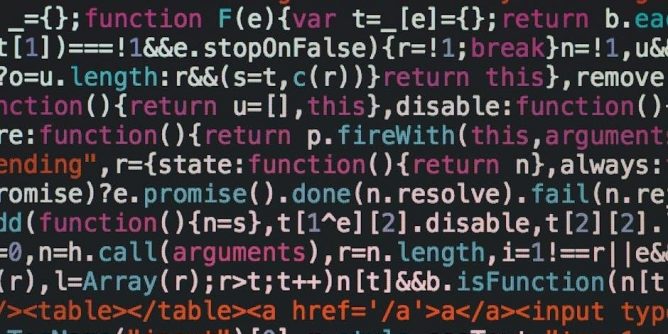
Kentucky charge code lookup is a tool for understanding legal violations, classifying charges, and ensuring accurate legal processes. It provides access to charge codes, aiding in determining charge severity and legal requirements.
1.1 Definition and Purpose
Kentucky charge code lookup refers to a system for identifying and classifying legal charges. Its purpose is to provide clarity on charge specifics, ensuring accurate legal proceedings. This tool helps determine charge severity, applicable statutes, and penalties, aiding both legal professionals and individuals in understanding case details. It ensures transparency and proper handling of legal matters in Kentucky.
1.2 Importance of Charge Code Lookup
Charge code lookup is vital for understanding legal violations in Kentucky. It ensures clarity on charge specifics, aiding in determining severity, applicable statutes, and penalties. This tool is essential for legal professionals and individuals, promoting transparency and accuracy in legal proceedings. Accurate charge codes guarantee proper case handling, ensuring fairness and efficiency in Kentucky’s justice system.

Understanding Charge Type Codes in Kentucky
Charge type codes in Kentucky are numerical representations used to classify legal charges, ensuring efficient case processing and accessibility. They provide clarity on charge specifics, aiding legal professionals and individuals in understanding violations and applicable penalties.
2.1 Structure of Charge Type Codes
Charge type codes in Kentucky are structured as numerical identifiers, typically containing specific digits that classify offenses. Uniform Offense Reporting (UOR) codes, for example, use a seven-digit format, with the first six digits representing the charge and the seventh indicating supplemental codes like “attempt” or “conspiracy.” This system ensures standardized classification and efficient legal processing.
2.2 Classification of Charges
Kentucky charges are classified into standard, supplemental, felony, misdemeanor, and non-criminal codes. Standard codes represent primary offenses, while supplemental codes modify or enhance charges. Felonies and misdemeanors are categorized based on severity, with non-criminal codes addressing regulatory or administrative violations. This classification ensures clarity in legal proceedings and uniform application of penalties across jurisdictions.
Legal Framework and Relevance
Kentucky’s legal framework relies on the Penal Code and Uniform Offense Reporting (UOR) codes to classify offenses. The Kentucky Open Records Act ensures public access to charge code information.
3.1 Kentucky Penal Code and Charge Codes
Kentucky’s Penal Code establishes definitions and classifications for criminal offenses, with charge codes serving as numerical identifiers. These codes help legal professionals reference specific statutes, ensuring consistency in legal proceedings. The Penal Code requires accurate charge code usage to maintain clarity and fairness in the justice system across the state of Kentucky.
3.2 Uniform Offense Reporting (UOR) Codes
Uniform Offense Reporting (UOR) codes in Kentucky standardize crime classification for legal documentation. Each UOR code consists of seven digits, with the first six identifying specific offenses and the seventh indicating supplemental codes like attempt or conspiracy. These codes ensure consistency in reporting crimes, aiding law enforcement and legal professionals in maintaining accurate records and fostering efficient legal processes statewide.

Accessing Charge Code Information
Charge code information in Kentucky can be accessed through the Kentucky Online Offender Lookup (KOOL) system or by requesting records under the Kentucky Open Records Act. These platforms provide transparency and access to charge details for legal and public use.
4.1 Kentucky Online Offender Lookup (KOOL) System
The Kentucky Online Offender Lookup (KOOL) system allows users to search for offenders by name, providing access to charge codes and related information. However, it does not offer direct charge code searches. Users can utilize this tool to identify specific charges associated with offenders, aiding in legal research and public awareness. It enhances transparency in legal proceedings and public safety.
4.2 Kentucky Open Records Act
The Kentucky Open Records Act allows individuals to request charge code information from government agencies, promoting transparency and public access. While some records may be restricted for privacy, the Act ensures that most charge code data is accessible, supporting legal research and accountability; This law is crucial for obtaining specific charge details and understanding legal procedures in Kentucky.

Types of Charge Codes
Kentucky charge codes are categorized into standard, supplemental, felony, misdemeanor, and non-criminal codes, each serving distinct purposes in legal documentation and proceedings, ensuring accurate classification and legal compliance.
5.1 Standard Charge Codes
Standard charge codes in Kentucky are predefined classifications used to identify specific offenses, ensuring consistency in legal documentation. These codes are structured to categorize charges clearly, aiding legal professionals and individuals in understanding offense details. They are essential for accurate legal processes, providing a uniform system to classify violations and determine appropriate actions. Standard codes form the foundation of Kentucky’s charge code system, ensuring transparency and efficiency in legal proceedings.
5.2 Supplemental Codes
Supplemental codes in Kentucky provide additional details to standard charge codes, such as modifiers for intent or severity. They include categories like attempt, solicitation, and conspiracy, offering a more comprehensive understanding of charges. These codes enhance specificity in legal documentation, aiding in accurate case assessment and ensuring proper legal proceedings. They are crucial for detailed charge classification, complementing standard codes with essential contextual information. This dual system ensures thorough legal documentation, supporting precise charge interpretation and application.
5.3 Felony and Misdemeanor Codes
Felony and misdemeanor codes in Kentucky are designated to distinguish the severity of charges. Felony codes are marked with ‘M’ for mandatory jail time and ‘Y’ for potential imprisonment, while misdemeanors are labeled similarly but with less severe penalties. These codes help legal professionals and individuals identify the nature and consequences of charges, ensuring accurate legal proceedings and documentation. They are essential for proper classification and understanding of criminal offenses in Kentucky.
5.4 Non-Criminal Charge Codes
Non-criminal charge codes in Kentucky cover violations outside the criminal realm, such as civil infractions or regulatory offenses. These codes, often marked with specific identifiers, help differentiate non-criminal charges from felonies and misdemeanors. They are crucial for legal professionals and individuals to understand the nature of non-criminal violations, ensuring accurate legal processes and documentation without the implications of criminal offenses.

Legal Procedures and Charge Codes
Charge codes play a vital role in Kentucky’s legal procedures, ensuring accurate charge filing and processing. They facilitate fair legal proceedings by providing clear charge classifications and references for courts and attorneys.
6.1 Filing and Processing Charges
Charge codes are essential in Kentucky’s legal filing and processing of charges, ensuring accurate classification and documentation. They guide attorneys and courts in assigning correct penalties, tracking cases, and maintaining legal consistency. Proper charge code assignment ensures transparency, efficiency, and fairness in legal proceedings, adhering to Kentucky’s penal code and legal standards.
6.2 Role of Charge Codes in Legal Proceedings
Charge codes play a critical role in Kentucky legal proceedings by ensuring accurate charge identification and legal consistency. They guide prosecutors, defense attorneys, and judges in understanding case specifics, determining penalties, and managing court processes. Charge codes also facilitate case tracking and transparency, ensuring that legal decisions align with Kentucky’s penal code and procedural requirements;

Charge Code Lookup Process
The charge code lookup process involves accessing Kentucky’s charge type code table through administrative systems or legal databases. This tool helps classify charges, ensuring accurate legal documentation and proceedings, and provides detailed offense information for legal professionals and individuals.
7.1 Steps to Perform a Charge Code Lookup
To perform a charge code lookup in Kentucky, access the charge type code table through the Admin landing page. Navigate to Statutes and Charge Options, then select the Charge Type snap-in. Use the Code Tables master list in the General Configuration group for alternative access. Enter the specific charge code or description to retrieve detailed information. This process ensures accurate legal documentation and proceedings, aiding professionals and individuals in understanding charge specifics efficiently.
7.2 Tools and Resources for Lookup
Key tools for performing a Kentucky charge code lookup include the Kentucky Online Offender Lookup (KOOL) system and the Kentucky Open Records Act. Additionally, platforms like airSlate SignNow offer electronic signature and document management solutions, streamlining the process of accessing and managing charge code information. These resources ensure efficient and accurate lookup of charge codes for legal professionals and individuals.
Practical Applications of Charge Codes
Charge codes are essential for legal professionals to prepare cases and for defendants to understand their charges. They aid in accurate document management and ensure compliance with legal standards.
8.1 For Legal Professionals
Charge codes are indispensable for legal professionals, enabling precise case preparation and ensuring compliance with Kentucky statutes. Tools like airSlate SignNow facilitate efficient document management, e-signatures, and accurate charge code integration, streamlining workflows and enhancing legal precision. This ensures that professionals can access and apply charge codes effectively, maintaining the integrity of legal proceedings.
8.2 For Individuals and Defendants
Charge code lookup empowers individuals and defendants to understand their charges accurately; Tools like airSlate SignNow provide easy access to charge codes, enabling defendants to review their legal standing. This transparency ensures informed decision-making, helping individuals navigate their legal obligations and rights effectively, while also streamlining communication with legal representatives.

Online Platforms for Charge Code Management
Online platforms like airSlate SignNow simplify charge code management with e-signatures and digital tools, enabling efficient lookup and documentation processes for legal professionals and individuals in Kentucky.
9.1 airSlate SignNow for Electronic Signatures
airSlate SignNow provides an intuitive platform for electronic signatures, enabling seamless charge code lookup and document management. Its user-friendly interface allows legal professionals and individuals to e-sign and share documents securely, ensuring compliance with Kentucky’s legal requirements. This tool streamlines workflows, enhancing efficiency and accuracy in legal processes;
9.2 Digital Document Management
Digital document management tools like airSlate SignNow simplify charge code lookup processes, allowing users to store, organize, and retrieve legal documents efficiently. These platforms offer secure storage options, ensuring sensitive information remains protected. By integrating digital solutions, users can enhance productivity and maintain compliance with Kentucky’s legal standards, reducing the need for physical paperwork and streamlining document workflows.

Importance of Accuracy in Charge Codes
Accurate charge codes are crucial for ensuring proper legal proceedings, transparency, and fairness. Errors can lead to legal complications, penalties, or delays, emphasizing the need for precise code usage.
10.1 Consequences of Incorrect Charge Codes
Incorrect charge codes can lead to legal complications, penalties, or delays. They may result in misclassification of offenses, affecting case outcomes and credibility. Ensuring accuracy is vital to maintain justice and proper legal proceedings, as errors can undermine the integrity of the judicial system and lead to unnecessary disputes or repercussions for all parties involved.
10.2 Best Practices for Charge Code Usage
Best practices include understanding charge code definitions, verifying accuracy with official sources, and using tools like airSlate SignNow for efficient document management. Legal professionals should regularly audit charge codes to ensure compliance and stay updated on legal reforms. Proper training and cross-referencing with Kentucky Penal Codes and UOR systems are essential for accurate charge code implementation and legal consistency.

Future Trends in Charge Code Lookup
Future trends include integrating advanced technologies like AI for faster searches and improved accuracy. Digital platforms will streamline charge code access, enhancing legal workflows and ensuring compliance with evolving Kentucky laws.
11.1 Technological Advancements
Technological advancements, such as AI integration, will enhance charge code lookup efficiency in Kentucky. Digital platforms will offer real-time updates, improving accuracy and accessibility. Mobile-friendly tools will enable seamless charge code searches, ensuring legal professionals and individuals can quickly access essential information on the go, streamlining legal workflows and compliance with Kentucky’s evolving regulations.
11.2 Legal Reforms and Updates
Legal reforms in Kentucky are continually refining charge code systems to enhance clarity and accessibility. Updates to the Kentucky Penal Code and Uniform Offense Reporting (UOR) codes ensure consistency and transparency in legal documentation. These reforms streamline charge classification, aiding legal professionals and individuals in understanding charge specifics, while maintaining compliance with evolving legal standards and public access requirements.
Kentucky charge code lookup is essential for legal clarity and efficiency, providing accurate charge details and ensuring compliance with state laws. It aids professionals and individuals in navigating legal processes effectively.
12.1 Summary of Key Points
Kentucky charge code lookup is vital for understanding legal violations, classifying charges, and ensuring accurate legal processes. It provides access to charge codes, aiding in determining charge severity, applicable statutes, and potential penalties. Resources like the Kentucky Online Offender Lookup (KOOL) system and the Open Records Act facilitate access to charge code information. Accurate charge codes ensure proper legal proceedings, transparency, and fairness, while tools like airSlate SignNow simplify document management and e-signatures, enhancing efficiency and compliance.
12.2 Final Thoughts on Charge Code Lookup
Kentucky charge code lookup is an essential tool for legal professionals and individuals, ensuring accuracy and efficiency in legal proceedings. By leveraging resources like KOOL and airSlate SignNow, users can streamline document management and maintain compliance. As technology advances, charge code lookup will remain vital for transparent and fair legal processes, supporting the evolving needs of Kentucky’s justice system.